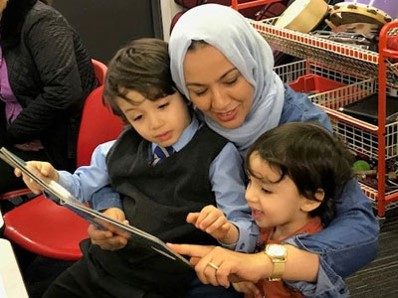 This section is currently under review following feedback from families. The materials below will be revised as necessary to reflect the outcome of this feedback.
This section is currently under review following feedback from families. The materials below will be revised as necessary to reflect the outcome of this feedback.
Parental engagement is recognised as one of the seven key drivers of improvement in the National Improvement Framework. The engagement of parents and families can help raise attainment and help to ensure every child has an equal chance of success. Relationships with parents and families are strengthened when they feel that their children and their communities are valued and that the diversity of languages, cultures and religions is recognised. Their experience of education will be shaped by their own experience of education, that of their own child and the flexibility of settings to maximise inclusion. Both parents and learners recognise when staff display cultural awareness which supports an inclusive ethos.
Just as each learning community is unique, it is important that all Minority Ethnic parents are not viewed as a homogeneous group. Values and attitudes towards education can vary widely between families and across ethnic groups. Where language barriers exist, access to translators and/or translation software is important. At other times, policies and practices may take insufficient account of non-dominant cultures; this may affect the quality of parental engagement. Recognising and celebrating the diversity of local communities can be a powerful way to break down barriers and strengthen relationships.

Family members learning together as a family has been emphasised as an important and effective approach to raising attainment and achievement. English as a Second or Other Language (ESOL) programmes that support families learning together have been developed to remove the barrier of limited English language skills. They can also reduce social isolation, and, where needed, support parents to access further training and development.
More information on engaging with parents and families is available here.
Reflective questions
- What changes could be made to your practice to engage parents from all ethnic and cultural groups to support their children’s learning and participate in the life of the learning community?
- How representative of your community are parent groups e.g. PTA/Parent Council? How are Minority Ethnic parents supported to become involved in these groups?
- How does your setting ensure that parents and families of all ethnicities, cultures and heritage are involved in self-evaluation and decision making?
- Have potential barriers been considered? Fear of racism or discrimination may be acting as a barrier. Can you actively create an inviting and safe space for parent engagement?
- How does your setting support Minority Ethnic parents when English language skills are a barrier to communication? Can community partners support?


